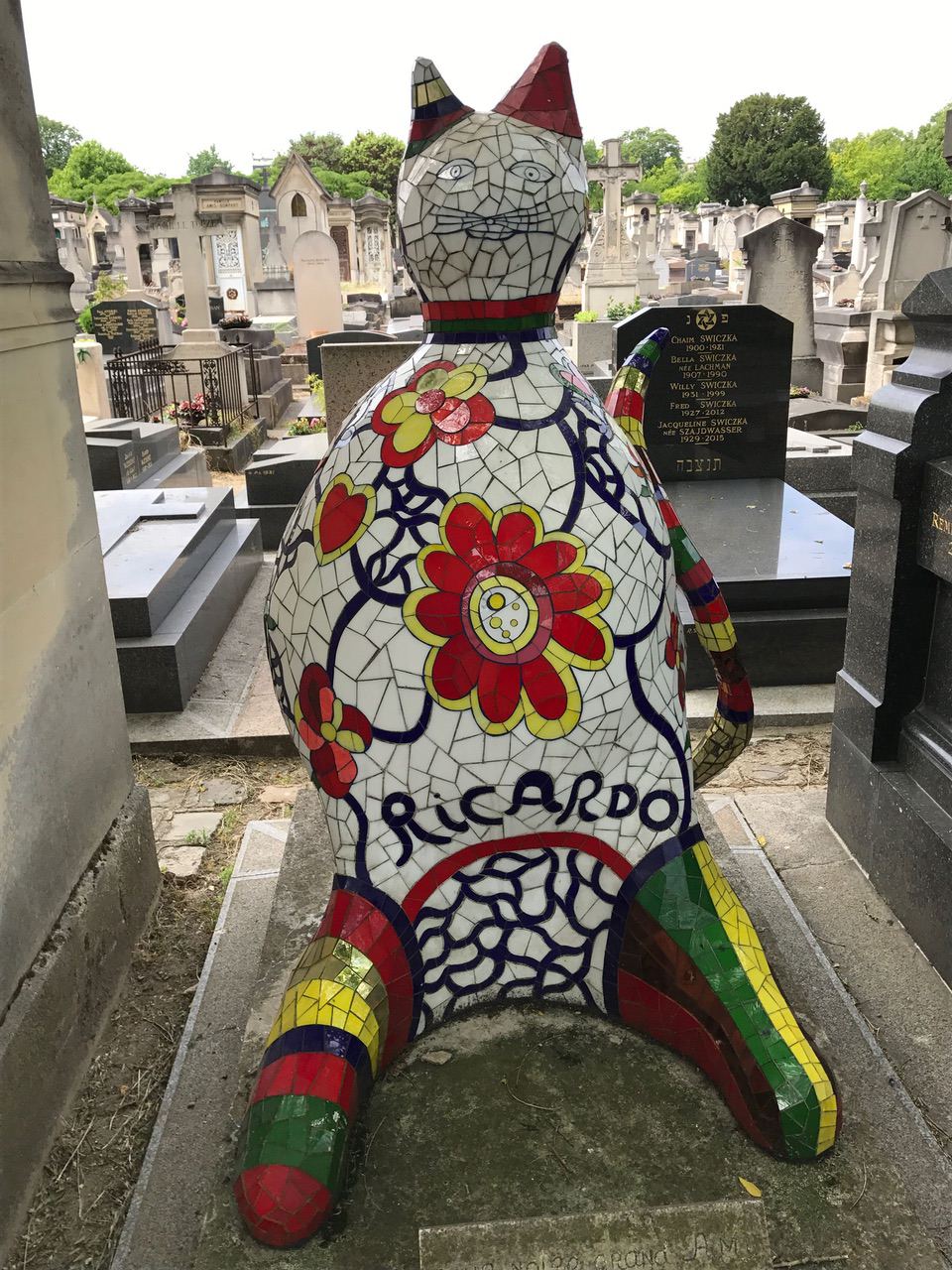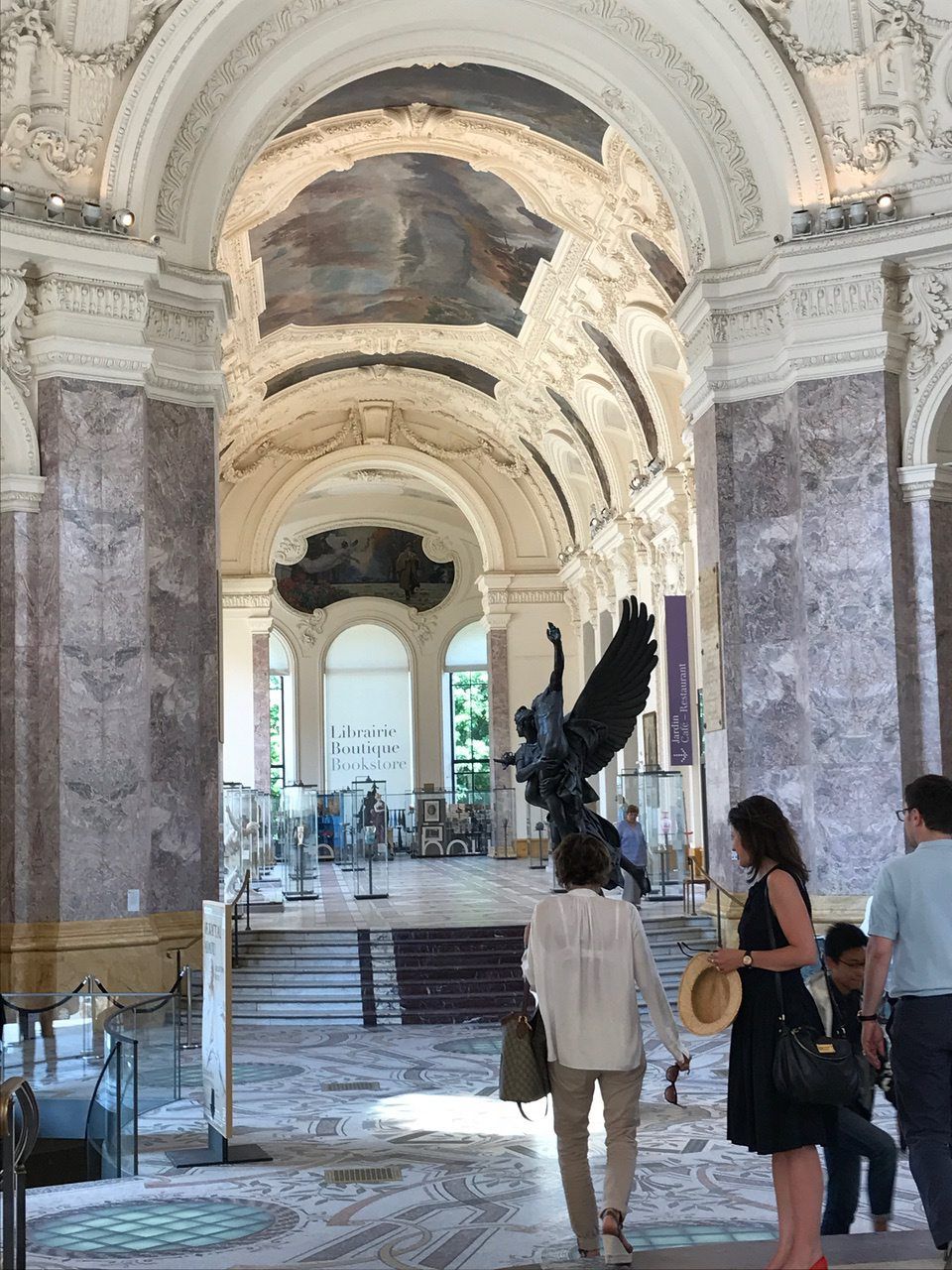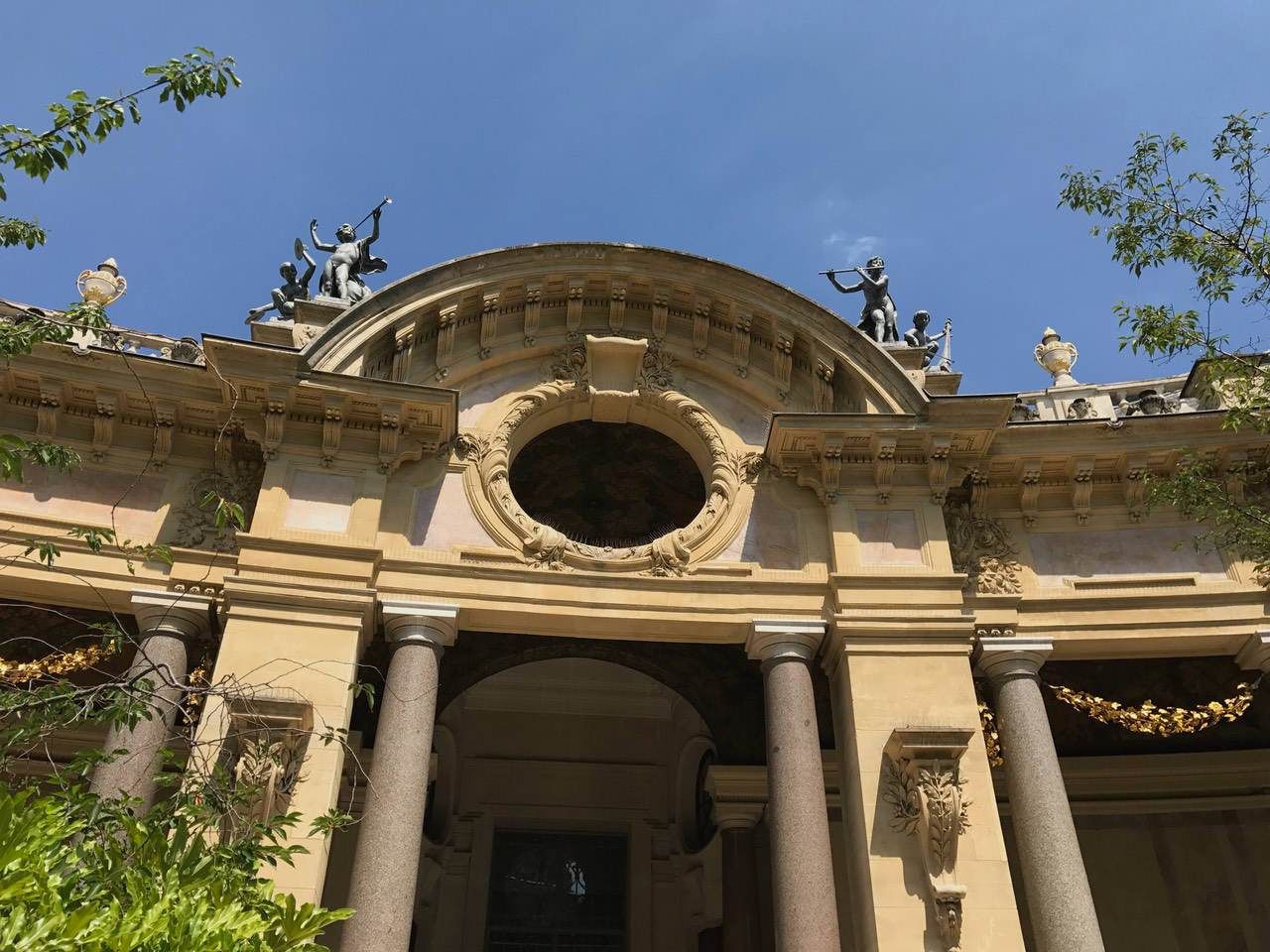Plex: 16 November 2022
Community Wisdom Gardening Co-Debrief - Paris Pix - Quick Takes - CSC Mastodon Resources

The Biweekly Plex Dispatch is an inter-community newspaper published by Collective Sense Commons on first and third Wednesdays of each month. Price per issue: 1 USD, or your choice of amount (even zero).
In This Issue
- Pete and Charles: Community Wisdom Gardening Co-Debrief
- Ken Homer: Paris Pix
- Jack Park: Quick Takes
- Peter Kaminski: CSC Mastodon Resources

Community Wisdom Gardening Co-Debrief
by Peter Kaminski and Charles Blass
We sat down two weeks after Charles hosted the Community Wisdom Gardening Summit and Pattern Jam to co-debrief, toward a pattern of easy fun generative and efficient wisdom-reporting that we hope to do and see more of.
Recording: Community Wisdom Gardening part 1 (1 November 2022) (YouTube)
Session Details (Google Doc) + Living Artifact (Google Doc)
Background on Doug Engelbart's model of “A” “B” “C” work: The ABCs of Organizational Improvement (DougEngelbart.org)
This is lightly edited recap of our co-debrief.
PETE: Okay, we're recording.
CHARLES: I am grateful for your invitation. I'm excited at the opportunity, in terms of the co-debrief process of conversation, to set up a pattern or a protocol for easy fun generative and efficient co-debriefing — toward wisdom-reporting.
This wisdom report thing is an idea I had kicking around already for a couple of years, but didn't evolve it particularly. This goes along with the wisdom reporting approach. The idea of a co-debrief is very natural. Maybe we can do the meta thing as well as actually the thing.
I did have a couple of high-level takeaways, lingering inquiries from the gathering.
PETE: The body of the call was really rich, and really deep. There's a lot there. The thing that I'm attracted to right now, is to do kind of a meta-debrief: How did the call go? How are we going to compost?
Let's look at the artifacts of the call, but not too much about the content of the call. Let's think about how to approach the content of the call.
CHARLES: We're on the same wavelength, though they're not mutually exclusive.
PETE: How did you feel the call went? How did it go for you?
CHARLES: Oh, I was thrilled in a bunch of ways. I was surprised in a bunch of ways, and I didn't let myself get frustrated by the surprises.
One friend of mine, do you remember Sikho? He was coming around to cicolab a bit, South African guy. He told me something like, you already made it, you succeeded just by pulling the trigger, making it happen. So I took that in in a good way.
And there was some truth to that in terms of the back end. All of the hoops I had to jump through, the usual stuff. It was a lot of moving parts. Overall, very pleased.
One of the things I've been reflecting on and carrying forward is that in terms of the choreography I had intended, designed, woven together, it ended up being literally backwards, because of the various logistics and mishaps, which are natural and human.
My choreography was disrupted. One of the results, though, was that I didn't have a chance and didn't succeed in connecting up Tom Atlee and Howard Rheingold in the conversation. They remained quite disconnected, and I'm quite aware of that. It didn't happen, for a variety of reasons. So that's one thing I can say coming out of it.
PETE: Let me ask you about “magic,” if I may. In the universe sometimes magic happens, and everything is synchronicity – things just flow. Other times, though, things don't meet up, the going seems a bit rough. That happened to this call a bit, but I thought you did a great job of continuing to keep the magic flowing still.
CHARLES: Wasn't my magic, anyway. (laughing)
PETE: But would you have tried to set it up differently? Was it just the phase of the moon, that it didn't work out? Sometimes events just go off without a hitch and sometimes it's like the universe is kind of fighting you.
CHARLES: I didn't accept it as a fight. There were other little fights, or pulling my hair out moments along the way, but you know, it's all about the flow, baby!
PETE: So if not getting Tom and Howard together was maybe a bit of a miss, what were some of the big hits?
CHARLES: I thought you wanted to talk about gardening! (both laughing)
CHARLES: I need to shine a light on the walk-in star, which was Ward Cunningham. I don't remember how long you ended up hanging, but he hung out straight to the end. Which was peanuts in Flow Show terms, but which was almost four hours, and there was Ward, hanging hard. Talking a lot as he does, but no question, brilliant and captivating. So he kind of ended up stealing the show, and I basically let him. I egged him on mostly, and it was just like that in the second part. That part's not out yet. I appreciated that he was there, and that he was fine just speaking up.
This was another thing that was disconnected. Back on my sequence, which ended up being backwards. Tom ended up coming first of the three invited guests. Which, by the way, I still feel awkward that it's all these older white guys, and that's just how it worked out.That was not my intention. But there you go. It's an opening salvo in a broader ongoing thing. That was the landscape.
Then by calling Tom first I was forced to essentially throw him in the deep end, having no grounding in the Engelbart stuff. I had tried to set it up the other way, so he was going to get that direct dose from Howard to respond to. Instead, he did what Tom does, and he went straight to outer space in the wholeness zone, which is everywhere and everything and everywhen. And he's Tom and he's brilliant, and he's absolutely delicious, and he was just off and running, out there.
And that's what Ward Cunningham also did, into the machine, into the innards of the language of the what's-going-on-in-the-guts, and that was equally mesmerizing, brilliant, and totally outer space as well, for many of the people, not everyone there, but a lot of them were probably perplexed. So I was just marveling at the poetry of it actually. Again, disconnected, but still it was washing over us. Flowing in unexpected, uncharted ways.
And Howard did great, as Howard does, he stuck exactly to his domain, and that was informative. It was perhaps kind of shallow or slow for the Engelbartians, yet a decent primer for the uninitiated.
And then there was a good moment that happened much later. George Pór made an impassioned plea for C work, something like: “This is it! We got to do this!” So he’s on the program and he's tweeting Christina Engelbart out there, and where is she? I don't know, I haven't seen her yet. Anyway, dot dot dot, there's more to come on that. That was one of the high points, when George got up and was quite passionate.
CHARLES: So Pete, you were there. What worked, what didn't work? What did you take away?
PETE: I thought it was interesting...
A quick story: last week, in one of our calls, I bumped into a new person. He was saying all the right stuff, how we should work together can collaborate. So I'm like, have you ever heard of augmentation? You know. Have you ever heard of Doug Engelbart?
I was really surprised, and maybe I shouldn't have been. He was a little younger than us old-timers, but... “kids today,” you know. What are they learning if they're not learning about Doug?
Having had that experience the week before, I thought it was really interesting that you kind of set up the whole thing around Doug Engelbart. It felt smart, or grounded, or something like that to kind of go back to a really important source.
And to connect Doug's work with Tom or Howard or or George, some of the newer connections, and then that leads you to newer and newer stuff – people who haven't heard all the back story. So I thought this setup was really smart.
I wondered about the happenstances that sort of pushed on you. George had travel hiccups, Howard's Zoom decided to update and crash in the middle the call.
Some times things just flow, but sometimes, like during this event, it gets a bit turbulent. The laminar flow gets disrupted.
Kind of like instead of a placid river rafting trip, there was a big thunderstorm, and you know, maybe you want to take a rain date. I know how disruptive that can be, and you did a superlative job just rolling with it.
CHARLES: I was ready, and I had gotten this I Ching reading. Now, reflecting back, I had really prepared a lot. Maybe that was apparent, and there's so much more …
There's tons and tons that I prepared, and organized, that didn't make it in there.
It was exactly like my radio shows, when I have to rapidly boil twelve hours down to six. That's what you gotta do. On time. When the show goes on. What to eliminate and what really needs to go in there. And when it’s live, the decisions are fluid.
PETE: So, harvesting. How's that gonna work? This was a rich call, there was a lot of stuff in it. And I know it can be tempting to just... move on, rather than harvest. Do you have a plan? Do we have a plan?
CHARLES: Do we have a plan? I'm really delighted that you took enough of an interest to discuss it, and The Plex is one of the chess pieces. I have lots of plans. Some of them involve more conversations. That's a big part of where my attention has been. Sizing up and envisioning the look and feel, and the rhythm, and what are the various containers.
There's just tons and tons of stuff, as you saw a bit and can imagine in and around Kernel, that’s directly relevant, also overlapping with the Twitter-Mastodon stuff, and something called the Kernel Library. Plenty of aliveness in digital gardening!
PETE: Just that little explanation was super helpful. Without really thinking about it, I was thinking you might just make some static artifact, and call it good.
But I can see you think of it as an ongoing conversation, with different interlocking, related projects, with different sizes and kinds containers. That makes a lot more sense to me. It's an ongoing kind of evolution of many different kinds of things, and many different places. That makes a lot of sense to me. Thinking of it that way is super helpful.
CHARLES: I'm here to help. About the gardening, I don't know how that landed. I think I offered that toward the beginning somewhere. But there was another metaphor that had come up in an earlier I Ching reading, which was the image of the Well, or Fountain.

I didn't get to ask Howard about that metaphor, that would have been cool considering his pioneering activities on The WELL. But it's still there, somehow expressing community wisdom flow.
The Well metaphor may be better than the community garden, even though I'm still compelled with my naive, simpleton sort of take on Engelbart, in “the twins” of Dynamic Knowledge Repository and Networked Improvement Community.
I will at some point get into the C work. Maybe for now the simplicity and naiveté of my premise is still useful. I don't know if any of that came across, but… I'm almost speechless right now. I'm not getting the right words, ‘cause it was so deeply meaningful and significant just to surface it to the point where we were able to have this conversation. Even though it didn't all mesh and exactly flow.
I think people were generally entertained – often confused. But paying attention. So that's okay. Mystery is also useful. So I don't mind that at all.

Paris Pix
by Ken Homer




Quick Takes
by Jack Park
[Editor's Note: Jack's answers to a couple of current topic questions I had asked. – Pete]
FTX: I think Warren Buffet had it right when, years ago, he didn't think crypto added value.
Mattermost - any version: CSC is well tended and gardened, but it's still a loooong way from what a good Collective Intelligence platform can be. It's totally clueless, as is Slack, about the nature of threads and truly meaty conversations (quests).
Mastodon: I joined it way back when at a supposedly “for engineers” site, but it rapidly centered on LGBT issues. No problem with that, but those issues are not on my critical path, other than supporting those at the polls.
Recently found one for academics; with their renewed interest in the platform, I'm now linking with many others, from Jerry's tribes to other groups.
I always liked the ability to say more, bookmark toots, etc. But, even there, there's room for improvement. Given the protocol - which can be easily extended - the entire Fediverse has legs, IMHO.

CSC Mastodon Resources
by Peter Kaminski
As you may know, Collective Sense Commons is a public benefit project organized to provide coordination, communication, and sensemaking tools to individuals and organizations that are involved with collective sensemaking.
With the recent interest in Mastodon, you might wonder, will there be a CSC Mastodon instance any time soon?
We will keep Mastodon on our long-term roadmap, but at present, there is no dearth of instances for you to choose from. CSC can save its resources for tools that are less well-represented – currently Mattermost, and we're looking at Gitea, and HedgeDoc (an open source version of HackMD) to replace our aging Etherpad server, MeetingWords.
Let's start working on a wiki page of Mastodon information - how to choose an instance, a directory of Plex people on Mastdon, and other useful information.
Use this HackMD page: CSC Mastodon Resources (no sign-in required). Send me an email if you have questions or need help: kaminski@istori.com.

Thank you for reading! Next edition will be published on 7 December 2022. Email Pete with suggested submissions.
Many thanks to Charles Blass, Ken Homer, and Jack Park, for their contributions to this issue.